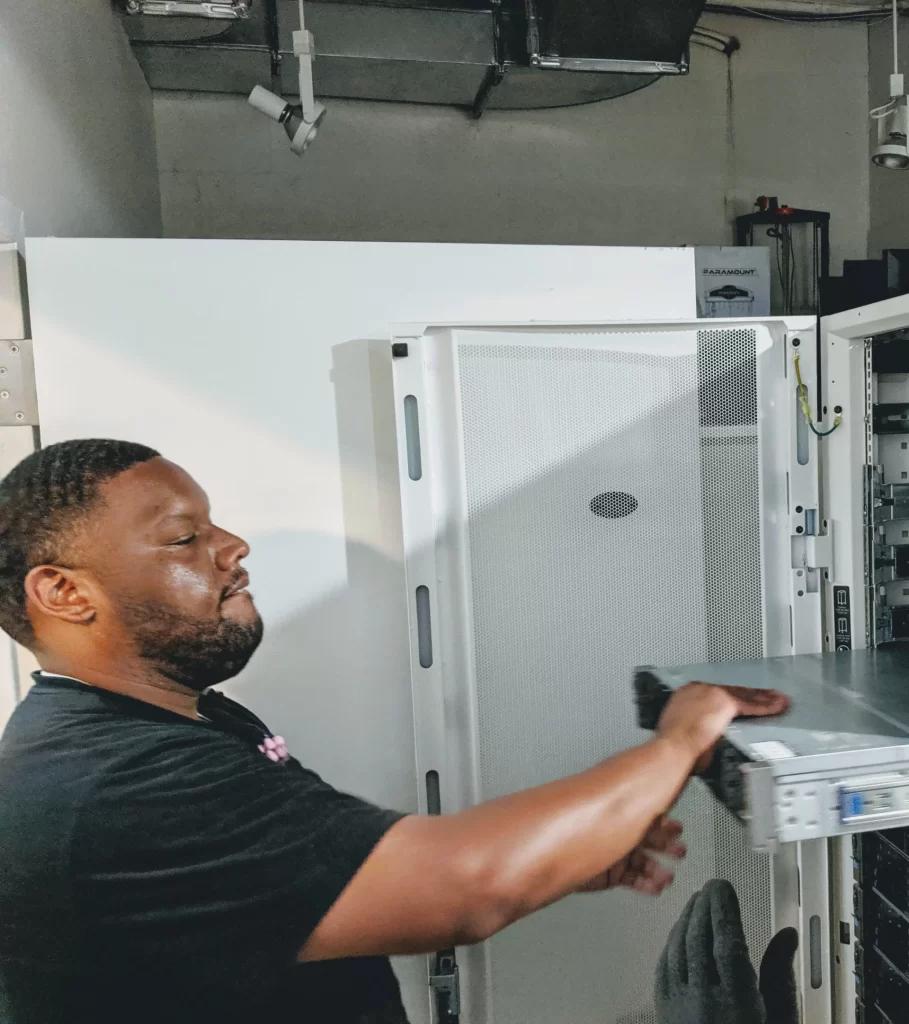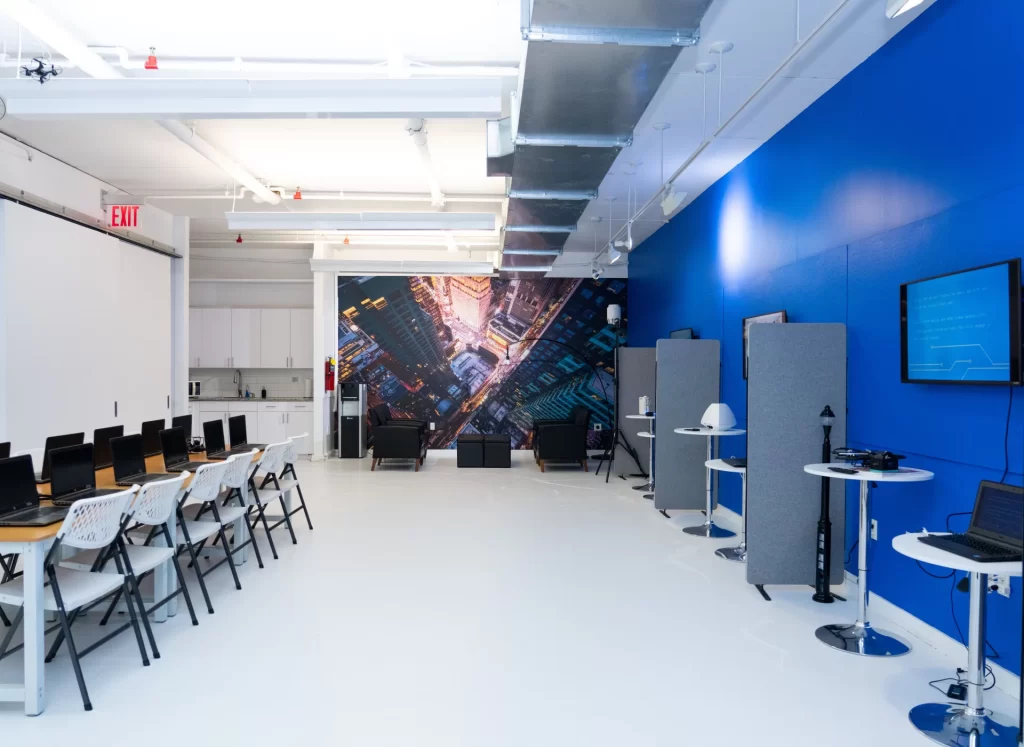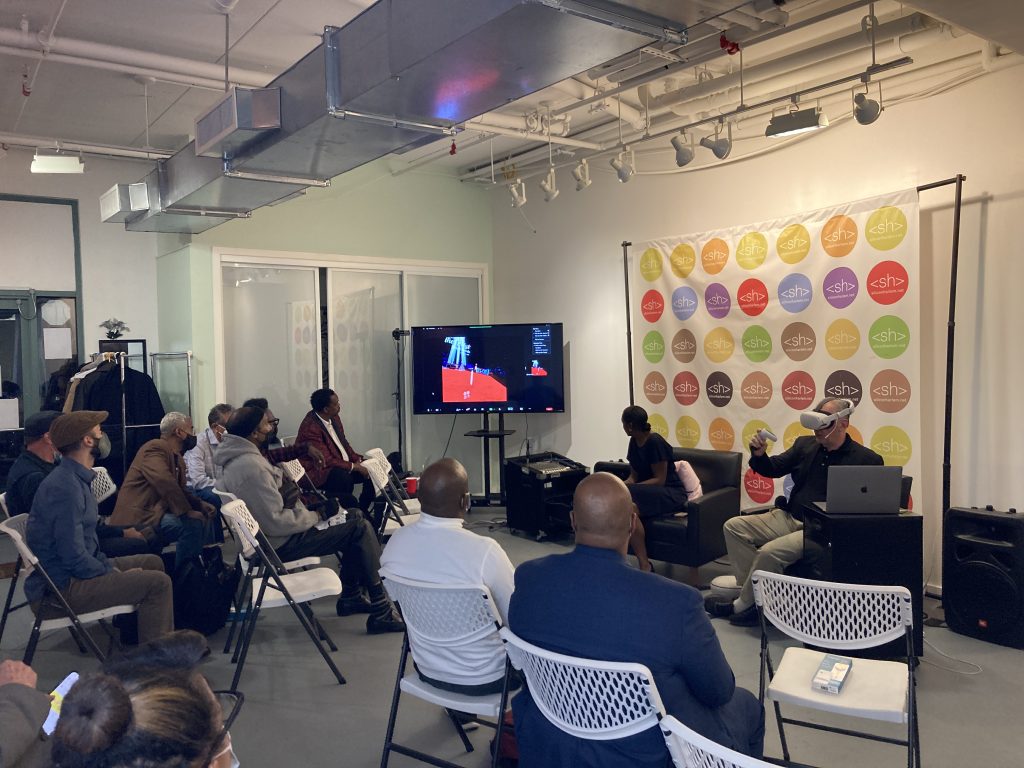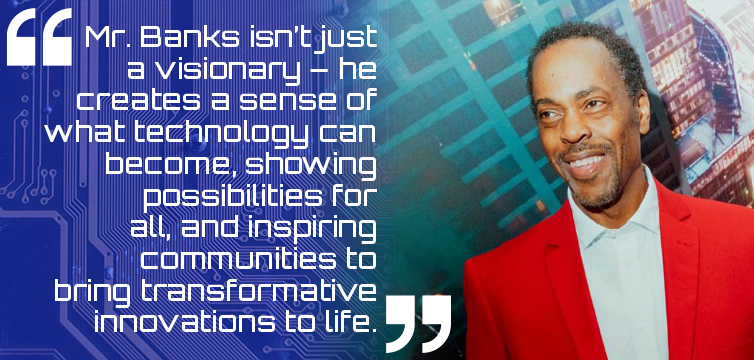Silicon Harlem is redefining the role of technology in communities, starting with Harlem and New York City. By positioning areas as hubs of technology and innovation, Silicon Harlem is paving the way for local communities to participate fully in the digital economy.
Founded in 2014, Silicon Harlem has worked alongside private companies, academic institutions, nonprofits, electives and community organizations to create the next generation of technological infrastructure that meets today’s community challenges while anticipating tomorrow’s needs.
Silicon Harlem’s approach centers on designing future infrastructure to avoid repeating the mistakes that have historically led to inequality. The company has identified five essential improvements to create a broadband and technology infrastructure that is sustainable, scalable, resilient, inclusive and most importantly, equitable.
- Equity: Creating opportunities for all, ensuring representation and participation across demographics. Everyone needs a connection.
- Envisioning Applications: Developing applications that serve community needs and new local engagement.
- Competition: Encouraging a dynamic environment where diverse providers and innovators can thrive.
- Affordability: Making broadband access cost-effective for all residents.
- Technical Standards: Establishing standards that ensure a robust and consistent broadband experience.
Telecommunications infrastructure profoundly affects the economic dynamics of broadband networks, especially in underserved areas. Silicon Harlem, with a team of Universities, spearheaded the first 5G testbed in the United States aimed at understanding the potential of advanced wireless connectivity. This effort included providing valuable insights into how scalable, next-generation infrastructure can support diverse applications and services.
Silicon Harlem collaborated with the City of New York, several universities, and top technology companies to develop COSMOS (Cloud-Enhanced Open Software Defined Mobile Wireless Testbed for City-Scale Deployment), the nation’s first urban-scale advanced wireless testbed. This initiative sought to advance broadband technology while serving as a model for future connectivity projects.
To extend the impact of COSMOS, Silicon Harlem and partners connected with the New York City Department of Education (DOE) to develop a K-12 curriculum centered on broadband technology, fostering digital literacy from an early age.

Silicon Harlem continues to solidify its role as a technological leader with the establishment of an edge cloud data center in Upper Manhattan. By enabling faster and more efficient data processing, this data center supports Silicon Harlem’s goal to close the digital divide and accelerates the area’s readiness for future technology. Moreover, the firm has attracted additional high-tech and innovative ventures to communities, creating a vibrant ecosystem.
Over the past decade, Silicon Harlem, under the leadership of CEO and co-founder Clayton Banks, has significantly transformed Harlem into a burgeoning technology and innovation hub. Their initiatives have focused on enhancing digital literacy, expanding broadband access, and fostering a vibrant tech ecosystem within the community.
Silicon Harlem’s Key Initiatives and Impact:
1. Digital Literacy and Education
STEM Workforce Development
Silicon Harlem has implemented training programs aimed at closing the digital divide, equipping residents with essential digital skills, and preparing them for the evolving job market.
Youth Engagement
The organization has provided coding classes and technology programs to young students, fostering early interest in technology careers.
2. Broadband Access and Infrastructure
Community Wi-Fi Networks
Recognizing digital deserts in Upper Manhattan, Silicon Harlem has established free outdoor networks to ensure residents have access to reliable internet services. Providing internet in affordable housing.
Gigabit Center
In collaboration with LinkNYC and the city, Silicon Harlem launched a gigabit center offering the city’s fastest free public Wi-Fi, providing coworking spaces and digital resources to the community.
3. Community Engagement and Events
Next-Gen Tech Conference
Annually, Silicon Harlem hosts this conference, bringing together tech leaders, entrepreneurs, and community members to discuss advancements and opportunities in technology.
Innovation Space
They have created walk-in centers where individuals can learn to create websites, launch companies, and engage with technology, promoting inclusivity and empowerment.
Building a Community-Driven Tech-Enabled Infrastructure Network



Silicon Harlem has a vision to introduce a Community-Driven Tech-Enabled Infrastructure Network to cities across the United States. This technology would integrate a blend of hyper-connected public Wi-Fi, tech-enabled sensors, AI-Enhanced Community Infrastructure Network, and Community-Powered Applications, all coordinated through a municipal platform that residents can easily access and influence. Here’s why this technology would make an impactful difference:
- Closing the Digital Divide: With equitable broadband access, every household would be linked to reliable high-speed internet, amplifying educational, healthcare, access to civics, and employment opportunities—particularly resonating with your vision for universal broadband.
- Empowering Community Insights: The tech-enabled sensors could monitor essential metrics like air quality, traffic flow, energy usage, and public safety data. With accessible data dashboards, residents would be empowered to understand their neighborhood’s unique challenges and advocate for targeted solutions.
- Job Creation and Economic Growth: Such a network would create new jobs in installation, maintenance, and data management. Communities could also attract businesses looking to leverage this tech-enabled infrastructure, supporting local economic growth and opening doors for tech-based careers.
- Sustainable and Resilient Community: AI systems could manage energy consumption efficiently, reduce waste, and quickly alert authorities to issues. This makes a community more resilient and better equipped to handle future challenges, including climate impact.
- Unity Through Municipal Control: By allowing residents to engage with, shape, and even govern this infrastructure, this network could embody the essence of “United Communities, United People,” fostering a profound sense of ownership and collective empowerment across communities everywhere.
This futuristic technology aligns perfectly for a goal of using technology for equitable impact, and a model for community-centered urban transformation.
Clayton Banks: How did this happen?

Silicon Harlem Creator and CEO, Clayton Banks got hooked on technology at a very early child. And the major tech impact came from Star Trek. The series wasn’t just imaginative – it created a sense of what technology could become, showing possibilities and inspiring engineers and scientists to bring these innovations to life.
Star Trek was full of forward-looking technology ideas that inspired real-world innovations.
Communicators – The original series’ communicators were essentially early versions of mobile phones, inspiring Motorola’s first flip phones, and eventually, modern smartphones.
Universal Translator – Star Trek’s universal translator envisioned real-time translation. Today, tools like Google Translate and translation earbud devices make real-time language translation a reality.
Tablet Computers (PADDs) – The crew used handheld PADDs (Personal Access Display Devices), which looked very similar to today’s tablets like the iPad and other mobile devices for reading, writing, and computing. Replicators – These machines could create food or objects on demand. While we don’t have this exactly, 3D printing technology echoes the same idea by allowing us to “print” objects from raw materials.
Tricorders – These multi-functional devices could scan environments and diagnose health issues. Today’s medical diagnostic devices, including handheld scanners and portable health monitors, owe a lot to this concept.
Holodecks – Holodecks were immersive virtual reality environments, an idea that now manifests in VR headsets and the push for immersive experiences in various industries.
Interstellar Networking – Starfleet’s ships were part of a larger network of interstellar communication systems, akin to the infrastructure of modern Internet, where data flows seamlessly between devices and locations.
The Prime Directive – Beyond gadgets, Star Trek introduced ethical considerations around non-interference in other cultures, foreshadowing modern ethical debates in tech around AI and interventionism.
“Mr. Banks isn’t just a visionary – he creates a sense of what technology can become, showing possibilities for all, and inspiring communities to bring transformative innovations to life.”


From the day I met Clayton Banks at Columbia University in 2009, it was a brotherhood forged that I would cherish to this day. He opened up his Silicon Harlem office for me to use anytime. His words were “you have an office here
anytime you like”. Over the years, not only would I attend his Silicon Harlem events, he made it his business to always be present at all of the events I produced as well for The Mentality. I protectively loved calling Clayton during the first week of the New Year as he always had predictions for technology for that year and the decade. We would meet in person or talk on the phone and with Clayton, it’s always a pleasure, it was greater than work – never work, it’s always fun.
He gives with an open the head, open the heart, and ask in return that our country keeps an open mind to the possibilities that we could be greater without a digital divide. That we could be better if we all were included in the technological movement that is upon us. I affectionately call Clayton my brother and I mean it with all my heart. Not only is he a giant among men that have come out of Harlem, he is a gentleman. Here’s to you Brother, with undying affection that’s second to none. Much love always Clayton!
Thank you Dr. Jay Thomas